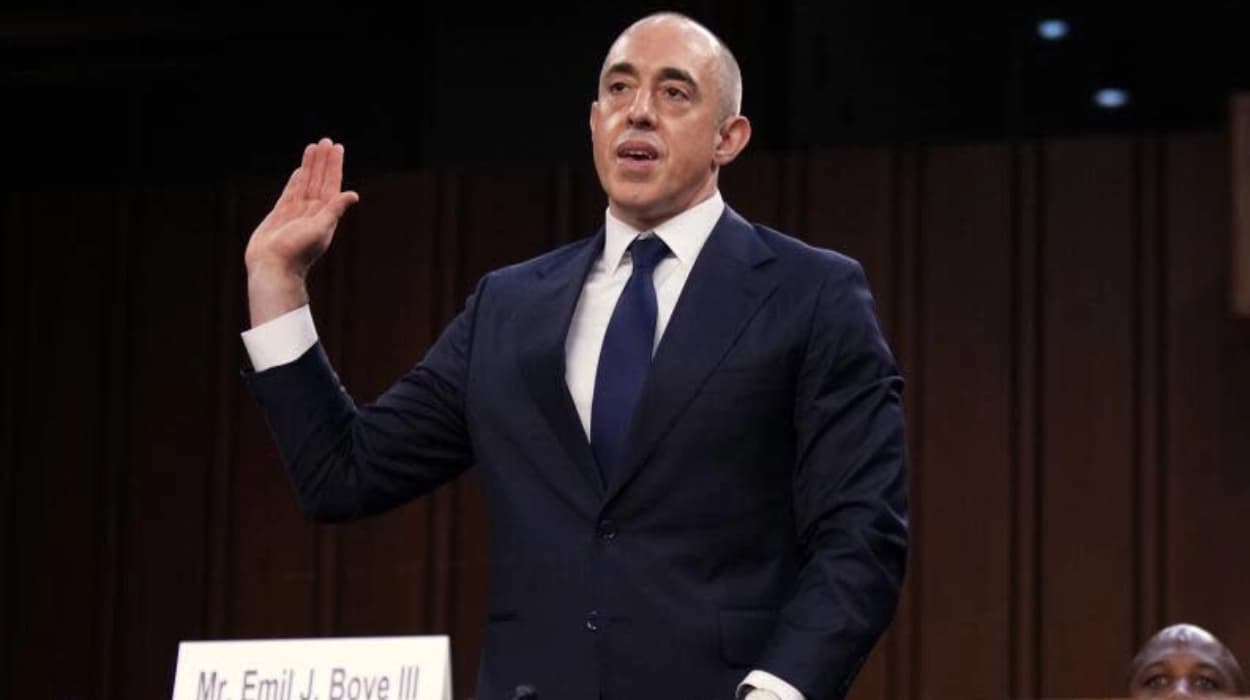Summary
- Senate confirmed Emil J. Bove, 50-49 vote.
- Trump’s defense lawyer appointed to the Appeals Court.
- Strong Democratic opposition due to ethics concerns.
- Led purge of Jan. 6 prosecutors, FBI agents.
- Some Republicans opposed, most supported confirmation.
The result was 49 to 50 on Tuesday night.
Bove, 44, supervised a purge of prosecutors and FBI agents who had worked on cases stemming from the attack on the Capitol on January 6, 2021, which made him a highly unpopular judicial nominee—not because of his legal opinions.
The Justice Department has a longstanding policy of excluding politics from law enforcement until this past year.
Bove and Atty. Gen. Pam Bondi, however, believed that their objectives were fulfilling President Trump's demands, including his intentions for revenge against the 1,500 Trump supporters who rushed the Capitol and engaged in combat with police, as well as his preparations for retaliation against the prosecutors and investigators who filed charges against him.
Additionally, Bove directed New York federal prosecutors to drop Mayor Eric Adams' bribery and corruption accusations. Many of them resigned in response to the action, which they perceived as an unethical pact to get the mayor's support for the administration's strategy to apprehend illegal immigrants.
Bove was also a major player in the dispute between the new government and a federal judge on the deportation of Venezuelans to a cruel jail in El Salvador.
According to a former Justice Department lawyer who is now a whistleblower, Bove advised government attorneys to disregard the judge's orders to stop the deportations.
Bove claimed to have been unfairly insulted and misunderstood when he went before a Senate committee as a judicial nominee.
How might Bove’s controversial record impact his decisions as a circuit judge?
Bove has been accused of prioritizing former President Trump's agenda over the rule of law, with whistleblowers and critics asserting that he has subordinated legal principles to political loyalty. This raises concerns that as a judge, he might favor decisions that align with partisan or ideological perspectives rather than impartial justice.
Reports describe Bove as having displayed hostility towards defendants, defense attorneys, and even his own colleagues, showing a combative and sometimes abusive style in his previous roles.
This temperament suggests he may approach judicial duties with harshness that could undermine fairness and due process for litigants, particularly marginalized parties.

